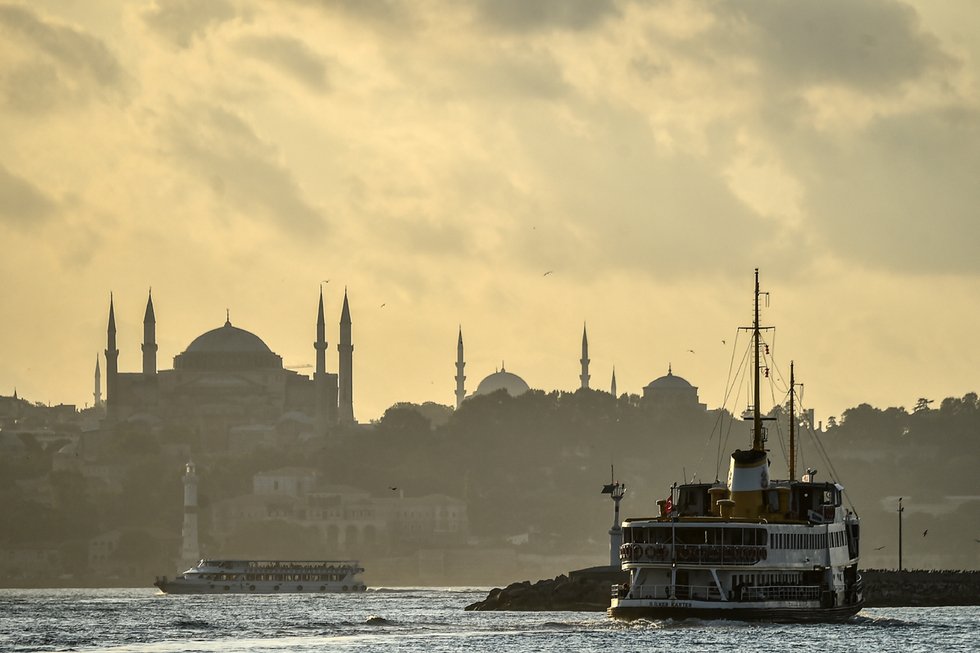Russia on Wednesday said Turkey had reassured it that a planned canal aimed at easing traffic on the Bosporus would not lead to a greater presence of NATO navies in the Black Sea, Agence France-Presse reported.
President Recep Tayyip Erdoğan’s government has long championed the controversial Canal Istanbul project — a 45-kilometre (28-mile) waterway running parallel to the Bosporus Strait connecting the Black Sea to the Sea of Marmara and the Mediterranean.
Russia fears that Ankara’s approval of plans to develop the canal will undermine its commitment to a 1936 convention that governs passage through the Bosporus and Dardanelle Straits.
Russian President Vladimir Putin in April called on Erdoğan to preserve the accord.
“We are satisfied by our interactions with our Turkish colleagues,” Foreign Minister Sergei Lavrov told reporters after talks with his counterpart Mevlüt Çavuşoğlu in the southern Turkish holiday resort of Antalya.
“During our negotiations, we put on record that the İstanbul Canal’s construction plans will in no way touch the parameters of the presence of foreign navies in the Black Sea,” Lavrov said.
Moscow is suspicious of NATO navies in the Black Sea, last week confronting a British warship that passed through contested waters around Crimea, which Russia seized from Ukraine in 2014.
The 1936 Montreux Convention aimed at demilitarizing the Black Sea by setting strict rules on passage by commercial and military ships.
The pact guarantees free passage for civilian vessels in times of peace and war.
But Çavuşoğlu did not confirm that Turkey had committed to not allowing NATO to send additional warships to the Black Sea, saying only that the İstanbul Canal would have no “direct effect” on the 1936 convention.
The Turkish minister said the convention has its own provisions stipulating how it can be terminated or revised.
“There will be no change to the Montreux Convention with the building of Canal Istanbul,” he said, adding that the waterway would be subject to Turkish laws.
Source:Turkish Minute


-150x150.jpg)
